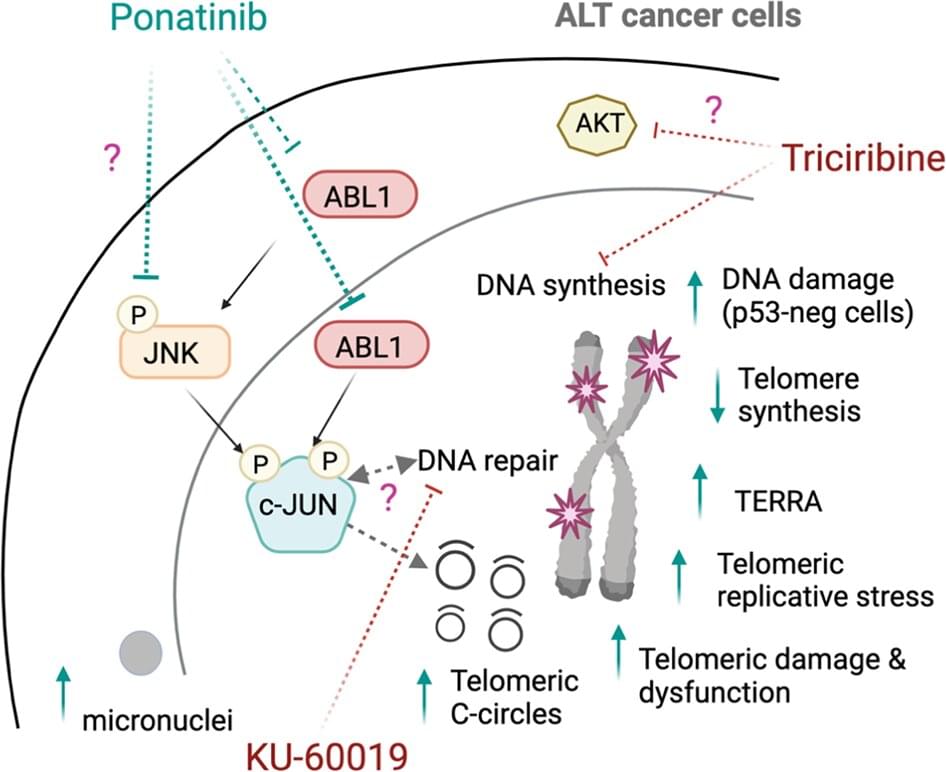A team of scientists led by Nanyang Technological University, Singapore (NTU Singapore) has found that an existing cancer drug could be repurposed to target a subset of cancers that currently lack targeted treatment options and are often associated with poor outcomes.
This subset of cancers makes up 15% of all cancers and is especially prevalent in aggressive tumors such as osteosarcoma (bone tumor) and glioblastoma (brain tumor).
These cancerous cells stay “immortal” using a mechanism called the alternative lengthening of telomeres (ALT), but the team has demonstrated that ponatinib, a cancer drug approved by the US Food and Drug Administration, blocks key steps in the ALT mechanism that leads it to fail.









Comments are closed.